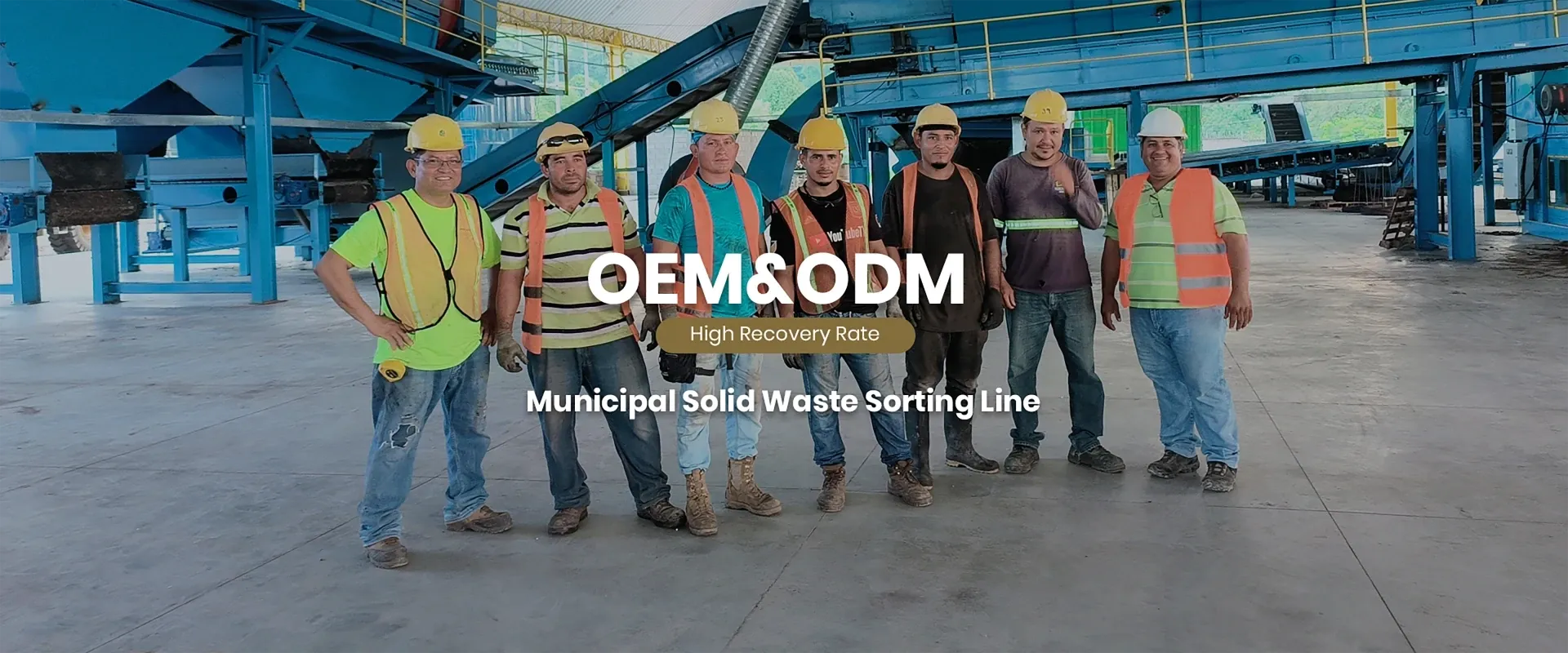

ਨਵੰ. . 16, 2024 20:13 Back to list
The Importance of Steel Scrap Shredder Machines in Modern Recycling
In today’s rapidly evolving industrial landscape, the need for efficient waste management and recycling practices has never been more critical. One of the key players in this arena is the steel scrap shredder machine, a vital component for processing scrap metal. This innovative machinery not only aids in the recycling of metal but also contributes significantly to resource conservation and environmental protection.
What is a Steel Scrap Shredder Machine?
A steel scrap shredder machine is a large industrial device designed to shred and reduce the size of scrap metal, particularly steel. These machines are engineered to handle various forms of metal waste, including old vehicles, appliances, and construction debris. By breaking down these materials, steel scrap shredders prepare them for further processing, making it easier to recycle and reuse metal components.
Typically, these machines utilize powerful motors and rugged blades designed to slice through thick metal. The shredding process transforms bulky items into manageable pieces, ultimately facilitating transportation and processing at recycling facilities. The end product is often referred to as “shred,” which can be sorted and melted down to create new steel products.
Environmental Benefits
The significance of steel scrap shredder machines extends beyond mere convenience. The environmental benefits of recycling metals are substantial. The extraction and refinement of new steel from raw materials require vast amounts of energy, water, and land. In contrast, recycling scrap metal significantly reduces these demands, conserving valuable resources.
By using a steel scrap shredder, recyclers can effectively return metal to the supply chain, thus mitigating the need for mining new materials. In fact, recycling steel saves approximately 70% of the energy required to produce new steel. Moreover, recycling contributes to the reduction of greenhouse gas emissions, as less energy consumption leads to fewer emissions.
Economic Impact

The steel recycling industry has a considerable economic impact as well. The process of shredding and recycling scrap metal creates numerous jobs along the supply chain, from collection and transport to processing and manufacturing. As demand for recycled steel remains high, so does the need for skilled workers in this sector.
Steel scrap shredders also add value to the recycling process. The shredded metal can be sold to steel mills for a competitive price, contributing to the economic viability of recycling companies. As construction and manufacturing industries increasingly prioritize sustainability, they are inclined to source recycled materials, further driving demand.
Technological Advancements
The design and functionality of steel scrap shredder machines have evolved considerably over the years, thanks to technological advancements. Modern machines incorporate sophisticated features such as automated systems, advanced controls, and enhanced safety mechanisms. For instance, many shredders now come equipped with sensors that optimize performance by monitoring the load and adjusting operational parameters accordingly.
Additionally, innovations in blade design and materials have improved shredding efficiency and durability, leading to longer machine lifespans and reduced maintenance costs. These advancements enable recyclers to operate at higher capacities while maintaining energy efficiency, thereby maximizing productivity.
Conclusion
In conclusion, the steel scrap shredder machine plays a pivotal role in promoting sustainable practices within the recycling industry. As the world continues to grapple with the challenges of waste management and resource depletion, these machines offer effective solutions for transforming scrap metal into valuable materials.
By facilitating the recycling of steel, shredder machines not only support environmental conservation but also contribute to economic growth and job creation. Investing in advanced shredding technology will further enhance the capabilities of recycling operations, ensuring that the steel industry remains adaptive and forward-thinking in the face of future challenges. Embracing these innovations is essential for a sustainable, circular economy, where materials are reused and recycled to their fullest potential.
Latest news
Troubleshooting Common Eddy Separator Problems
NewsJul.04,2025
The Role of Metal Recycling Plants in Circular Economy
NewsJul.04,2025
The Impact of Recycling Line Pickers on Waste Management Costs
NewsJul.04,2025
Safety Features Every Metal Shredder Should Have
NewsJul.04,2025
How Industrial Shredders Improve Waste Management Systems
NewsJul.04,2025
How Cable Granulators Contribute to Sustainable Recycling
NewsJul.04,2025